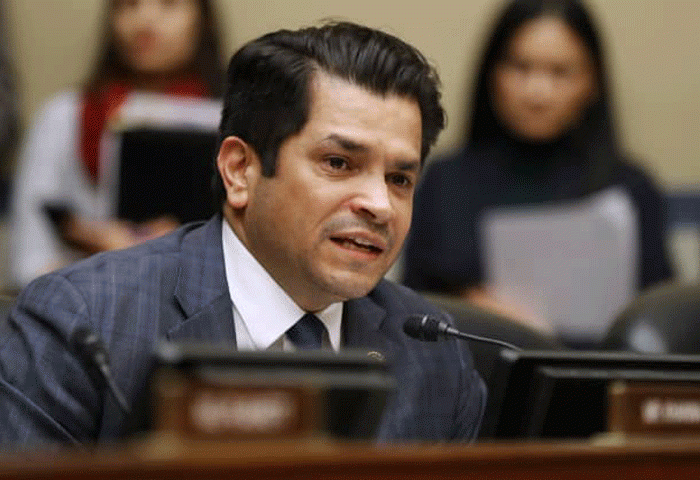
The key players in the opioid crisis may be using COVID aid to reduce legal fees. Rep. Jimmy Gomez says no
Pharmaceutical companies complicit in the opioid crisis are taking advantage of a tax loophole, but House Reps are fighting back.
Nearly 450,000 people have died since the onset of the opioid epidemic, with many of those deaths linked to prescription medications, according to the CDC.
Four companies that were major players in the crisis have agreed to pay a combined $26 billion to settle an onslaught of lawsuits and claims about their roles, but they plan to deduct a chunk of some of these settlements from their taxes, potentially saving them a combined sum of $4 billion.
The Washington Post was the first to report that the public filings by AmerisourceBergen, Cardinal Health, Johnson & Johnson, and McKesson show they all plan to write off future opioid payouts as “operating losses,” meaning they would pay far less in corporate income taxes.
It translates to a savings of $1 billion each, but House critics like Rep. Jimmy Gomez (D-CA) say there may even be opportunity for more.
The House Committee on Oversight and Reform sent letters to the four pharmaceutical companies to provide details about the tax deductions, particularly about a potential misuse of tax provisions from 2020’s CARES Act, the bailout package created to aid companies struggling during the pandemic.
Cardinal Health, House members argue, is seeking to exploit the CARES Act despite being fiscally able during the pandemic, to collect a $974 million cash refund on the losses it incurs in the legal settlement.
It doesn’t end there: AmerisourceBergen is recouping $1.1 billion, Johnson & Johnson $1.1 billion and McKesson $1.4 billion, according to the letter by Oversight Democrats.
RELATED CONTENT
In an email statement to NPR, a Cardinal spokesman said the plan to make use of the CARES Act tax provision complies with "current federal law," a loophole, in a sense, which allows them to "recover previously paid federal taxes."
“It would be wrong for you to deduct opioid settlement payments under a CARES Act provision intended to assist businesses that are struggling during the coronavirus pandemic. The American people should not be on the hook for hundreds of millions of dollars for your company’s role in fueling the opioid crisis,” House Committee members wrote.
Chairwoman Maloney, joined by Vice Chair Gomez, and Rep. Mark DeSaulinier continue to say that any attempt by the companies to reduce their settlement costs by taking advantage of the CARES Act is an “insult” to all communities suffering from the opioid crisis and the pandemic.
"I never thought it would get to the point where they would try to skirt their responsibility to pay...for an opioid crisis that they caused," Rep. Gomez told NPR.
“#CARESAct funds were meant to help struggling businesses of all sizes make it through this crisis. But now some drug companies are trying to use it to duck their fiscal obligations for the #OpioidCrisis they helped fuel. @RepMaloney, @RepDeSaulnier & I are fighting to stop that,” he went on to write on Twitter.
#CARESAct funds were meant to help struggling businesses of all sizes make it through this crisis. But now some drug companies are trying to use it to duck their fiscal obligations for the #OpioidCrisis they helped fuel.@RepMaloney, @RepDeSaulnier & I are fighting to stop that. https://t.co/yVN4iiEMyH
— Rep. Jimmy Gomez (@RepJimmyGomez) March 10, 2021
The three reps are asking for the companies to provide documents indicating that AmerisourceBergen will commit to cease such profiting from the CARES ACT, as well as a list of current and former employees who have been disciplined or terminated in relation to opioid sales.
The reps also ask for information on whether AmerisourceBergen has implemented sufficient anti-diversion programs, and finally, they’re asking for proof of the company’s transparency with the public concerning its opioid litigation.










LEAVE A COMMENT: